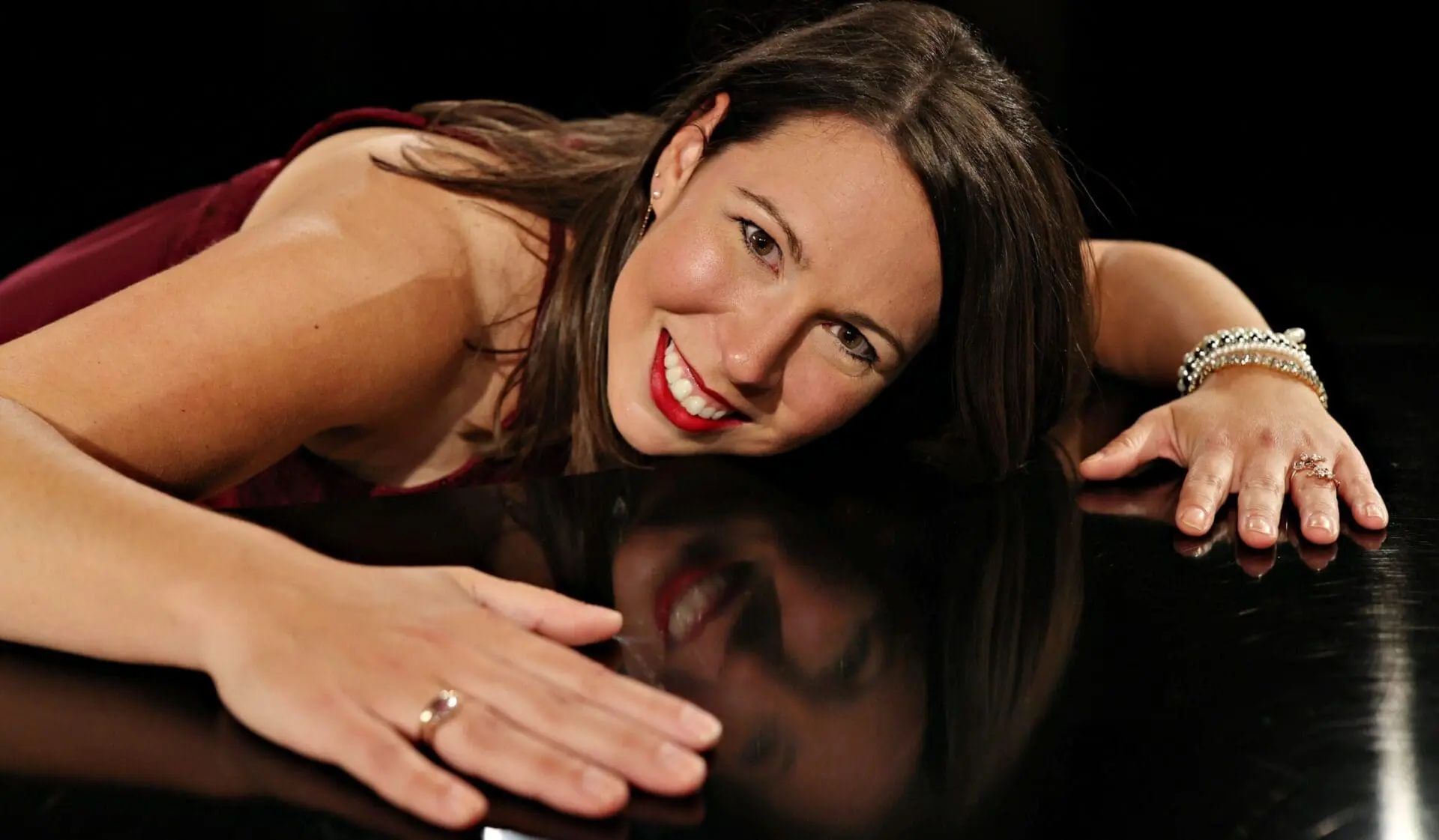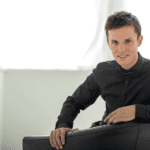The Artist of the Week is Canadian soprano Jessica Latouche. Currently in rehearsals in the role of Rosalinde for Opéra de Québec‘s production of La chauve-souris, May 11-18 (info and tickets here).
A frequent collaborator with Opéra de Québec, Jessica recently performed in their gala L’amour à l’opéra ou les mots|maux d’amour, the role of Anna in Verdi’s Nabucco, and understudied for the roles of Donna Anna and Donna Elvira in Don Giovanni. With Québec Opera Festival she performed the role of Lilas Fairy in the world premiere in Peau d’âne by JF Mailloux. Other past operatic performances include Blanche de la Force in Dialogues des Carmelites, Écho in Écho et Narcisse, Clotilde in Norma, and concerts in China and Belgium organized by the Young Lyric Ambassadors of Canada.
In between rehearsals Jessica sat down to talk to us about what inspired her to become a singer, some of her favourite roles, and how she deals with the tough rejection that comes with the music industry. Read on to find out more.
What inspired you to sing?
I have always sung. When I was a child, I took piano lessons and made up lyrics to my pieces and my mother was recording me in secret!
Favourite place?
I love Italy! Especially Tuscany. Locally, I love Île aux pommes, a little island in the Bas-St-Laurent region, where the birds are masters of the place. It’s a wonderful place for learning partitions and preparing concerts to come. It’s the perfect place to concentrate.
View this post on Instagram
If you weren’t a singer you’d be _________ ?
A show photographer! I love taking photos of music shows, especially opera productions or… rock shows, with all the lights and technical aspects that this requires!
Top 3 favourite composers?
– Verdi
– Puccini
– Poulenc
Top 3 favourite operas?
– La Traviata (yes, like 99% of the world 😛 )
– Faust
– Dialogues des Carmélites
Which opera role do you want to be singing right now?
Rosalinde (The Bat) – I am singing it right now! I would also love to sing Elle (La voix humaine, Poulenc), Marguerite (Faust, Gounod) and Blanche de la Force (Dialogues des Carmélites, Poulenc) which I performed only once, the day before everything was put on pause, March 12, 2020… But so many others too! There are so many beautiful soprano roles!
What’s the funniest thing that has happened to you on stage?
When I was in my first year of college (CEGEP), I was in the choir of the annual production. We had quite a complex choreography. During the general performance in front of an audience, I heard “crack” during a movement in the choreography. I also heard some laughter in the room. When we got off stage, a friend pointed out to me that… my pants were torn and we could see my butt!!! Now, I laugh about it without embarrassment. The show must go on!
What’s your favourite thing about singing with an orchestra?
It feels like a big engine is propelling us! Singing with an orchestra is the pinnacle, because each instrument has its own colour and subtext in the story. And what about power generated by the complementarity of instruments and nuances, sometimes strong, sometimes soft, which support us to bring emotions even further? Goosebumps guaranteed!
What’s something most people don’t know about opera life?
It is a real job! (Laugh!) I have been told so often “You sing well, but what is your job?” Moreover, people are not always aware of all the sacrifices required by this discipline. We sometimes have to make heartbreaking but essential choices for maintaining vocal hygiene. After all, our voice, but also our entire body, is our working instrument!
Which role do you wish you could sing, but is not in your voice type?
I would love to sing Nadir in Les pêcheurs de perles of Bizet. I often listen his aria (“Je crois entendre encore”) just for pleasure because this music is so melodious. I would also like to be able to sing Don José. Finally… I think I would like to be a tenor! Haha!
What’s your favourite mind-calming practice?
Nature and birds photography. Find the perfect moment to take the best photo, the one where the movement of the wings will be perfect. This, of course, after finding the bird! Nothing better to clear your mind!
Where did you go to school?
I studied in Quebec and have always been majoring in music since high school, until obtaining a doctorate in music performance at Laval University. It’s a real passion. The subject of my doctorate thesis was «The influence exerted by certain romantic French opera roles, requiring several different types of soprano voice at the same time, on the vocal development of the performer». This allowed me to enrich my technique and my vocal skills.
Do you sing in the shower?
Yes, always!!! I like practicing in the shower because it allows me to refine my vocal technique in a different way than in a small rehearsal room. And sometimes, I sing only for pleasure 🙂
When did you know you wanted to be an opera singer?
When I was younger, I participated, as a child choir member of Les Petits Chanteurs de Charlesbourg, in a production of Humperdinck’s Hansel and Gretel. It was at the Opéra de Québec, under the musical direction of Bernard Labadie and directed by Jacques Leblanc, with among others Chen Reiss in the role of Gretel, who was at the beginning of her career. I was so impressed by her singing and her stage presence! I felt like I was in a dream, in the theatre sets and costumes, with magnificent music. It was this experience that sparked a love at first sight for opera signing in me, and since that day, I dreamed of performing a major role in this same hall and also in other opera house.
The music industry is tough, and filled with rejection. How do you cope? Does it get easier?
You have to be very persistent and resilient. It’s always difficult to receive a rejection, especially when you have invested a lot of time, money and energy into a project. It’s okay to let your emotions come out, but you have to know how to roll up your sleeves and constantly find new projects. You shouldn’t wait for the phone to ring, but knock on several doors.
What is the ultimate goal of opera?
To entertain!!! Opera is not reserved for the initiated, it is aimed at everyone. It is the complete art, where we bring together singing, symphonic music, visual art, theater, dance, creation, laughter, tears… You simply have to let yourself be carried away by the show and emotion to discover this art and find your own pleasure in it.
When was the first time you cried at the opera?
As a performer, it was during a summer training course, where the director specifically asked me to cry during the tenor’s aria. Since then, every time I hear this tune, my body remembers the instruction to cry and I almost always have tears in my eyes!
As a spectator, it was during a production of La bohème with Opéra de Québec. Yes, we all know the ending, but…. how can you hold back your tears when you hear the last « Mimiiiiiiiiiii »!
Which of your roles has had the greatest impact on your perspective?
Blanche de la Force, in Dialogues des Carmélites. This role touched me deeply when I sang it. Beyond Poulenc’s sublime music, the fact of thinking that these Carmelites experienced such a martyrdom and that the entire libretto is inspired by a true story. It gives me both goosebumps and a form of serenity, since we are paying, in some way, homage to them through this work.
Are you a perfectionist?
Yes… a little too much! I like things to be done well and I always try to improve what can be improved. In this sense, I am perseverant in giving the best of myself.
What’s the most important lesson you learned from childhood?
I learned that we should not play into the game of negative leaders we encounter. I therefore thrive on positive and constructive leadership because it leads me healthily towards my own goals. This serves me daily, both personally and professionally. I’ve also learned to roll up my sleeves and start again when things don’t work. This is undoubtedly what allowed me to develop my perseverance.
LEARN MORE ABOUT JESSICA LATOUCHE
VISIT HER WEBSITE
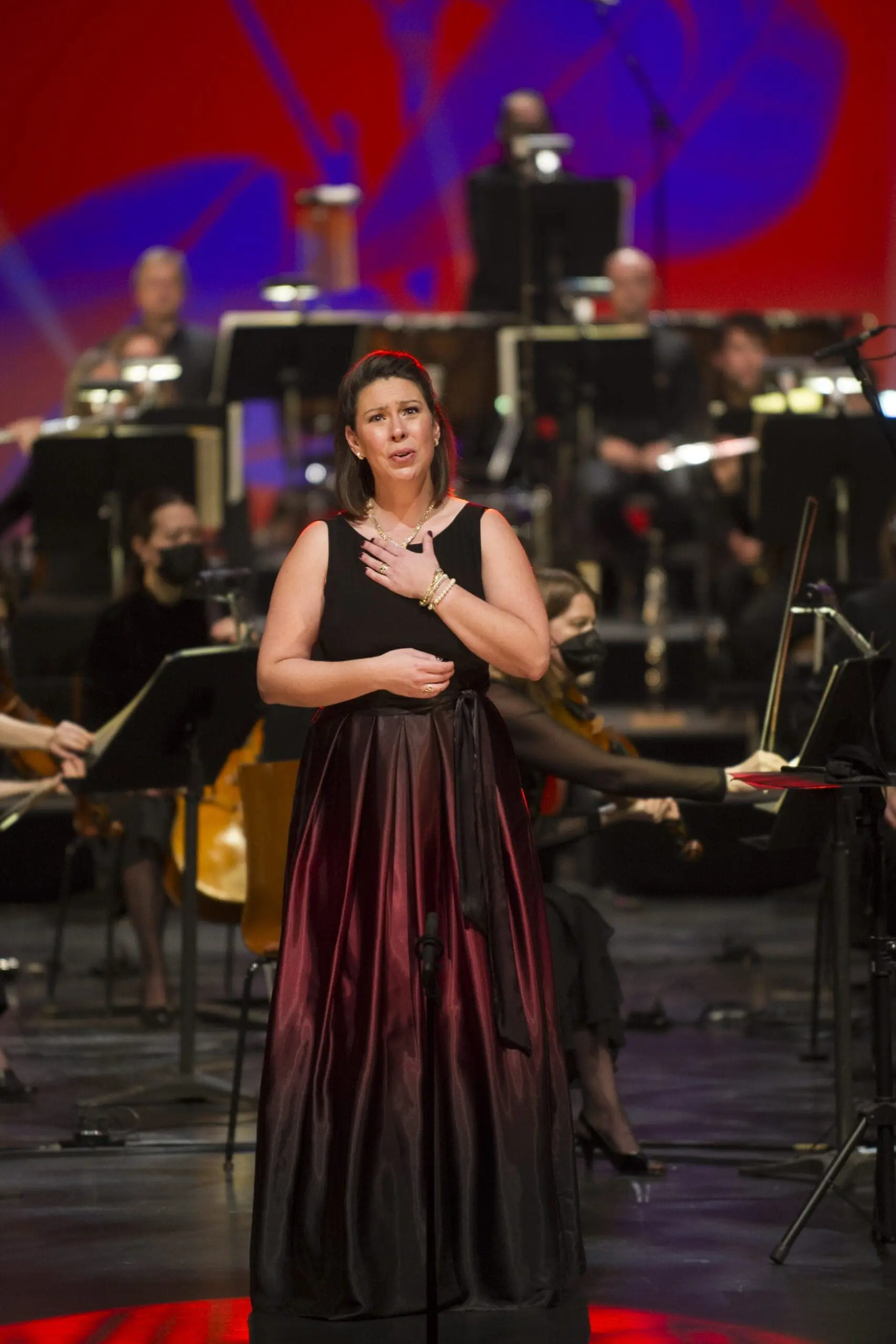
©Louise Leblanc
Gala l’amour à l’opéra ou les maux | mots d’amour, Opéra de Québec
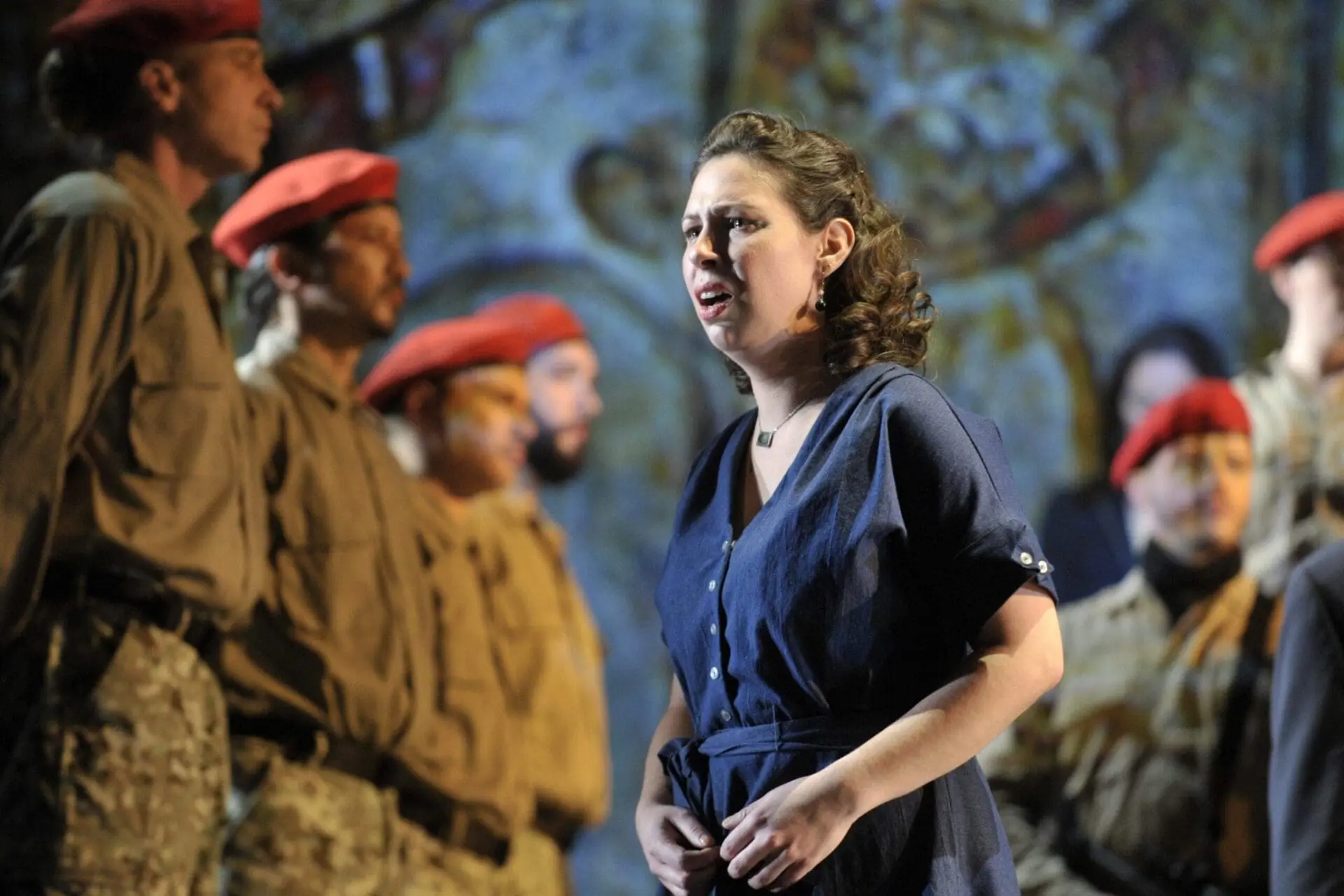
©Louise Leblanc
Nabucco with Opéra de Québec
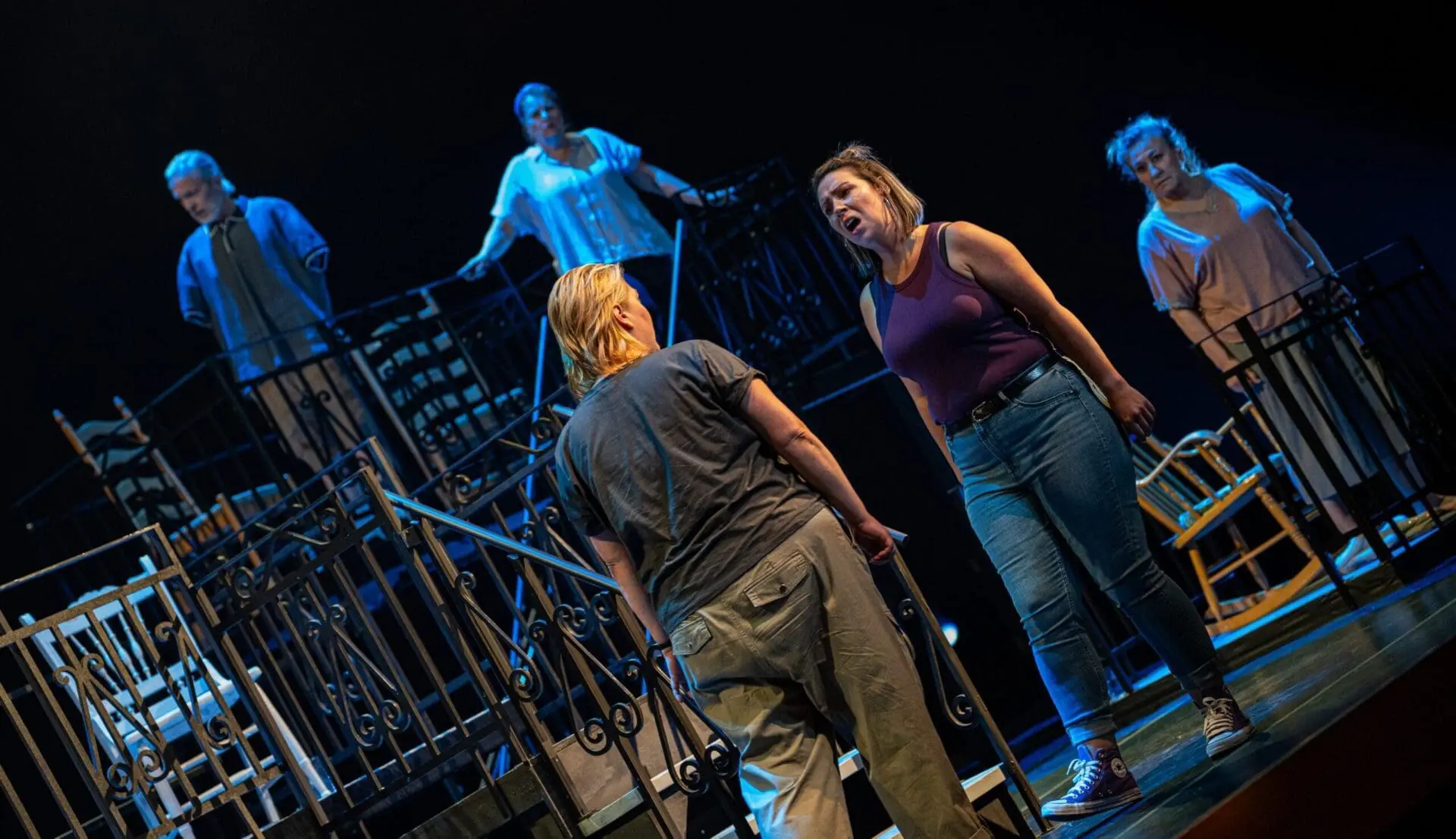
©Eric Laroche
Messe solennelle pour une pleine lune d’été with Festival d’opéra de Québec
La chauve-souris
Opéra de Québec
May 11 – 18
CONDUCTOR: Nicolas Ellis
DIRECTOR: Bertrand Alain
SET DESIGNER: Julie Lévesque
COSTUME DESIGNER: Émily Wahlman
MAKE-UP DESINGER: Élène Pearson
MUSIC STAFF: Trevor Chartrand
GABRIEL VON EISENSTEIN:Dominique Côté
ROSALINE:Jessica Latouche
DR FALKE: Dominic Veilleux
ADÈLE: Catherine St-Arnaud
PRINCE ORLOFSKY: Marie-Andrée Mathieu
ALFRED: Eric Laporte
FRANK: Geoffroy Salvas
DR BLIND: Hugues Saint-Gelais
IDA: Rose Lebeau-Sabourin
FROSCH: Martin Perreault
IVANIA: Michel Blackburn
BING! BANG! POW!
Joins prince Orlofsky’s ball discover the surprises, the nods to the sixties and Batman that this original and flamboyant production reserves you.
Premiered on April 5, 1874 at the Theater an der Wien, The Bat is arguably Vienna’s most popular operetta, often considered Strauss’ masterpiece. It satirically presents the bourgeois customs of the Belle Époque through a dance-like, refined and sparkling music, thanks to a whirlwind of waltzes, polkas or csárdás. The all-Quebec cast will take you through a crazy night of quiproquos, intrigues and revenge with all the frivolity, vivacity and subtlety necessary to charm you.
In Vienna, the rich Prince Orlofsky is deeply bored. To distract himself, he gives a masquerade: Dr. Falke; Gabriel von Eisenstein; his wife Rosaline, disguised as a Hungarian princess; Adèle, her maid… everyone is there, under a variety of pretexts. Eisenstein seduces all the women he meets, including his own, whom he does not recognize. Eisenstein, under legal trouble for having hit a policeman, returns to prison to serve his sentence. And lo and behold, the guests arrive one after the other… and the events are precipitated: Adele charms the prison warden, Rosaline confronts her husband and confesses that the evening is nothing more than a prank planned by Falke: it’s the revenge of the bat!
French version with French surtitles
With the Orchestre symphonique de Québec and the Opéra de Québec chorus
Opera Canada depends on the generous contributions of its supporters to bring readers outstanding, in-depth coverage of opera in Canada and beyond.
Please consider subscribing or donating today.

